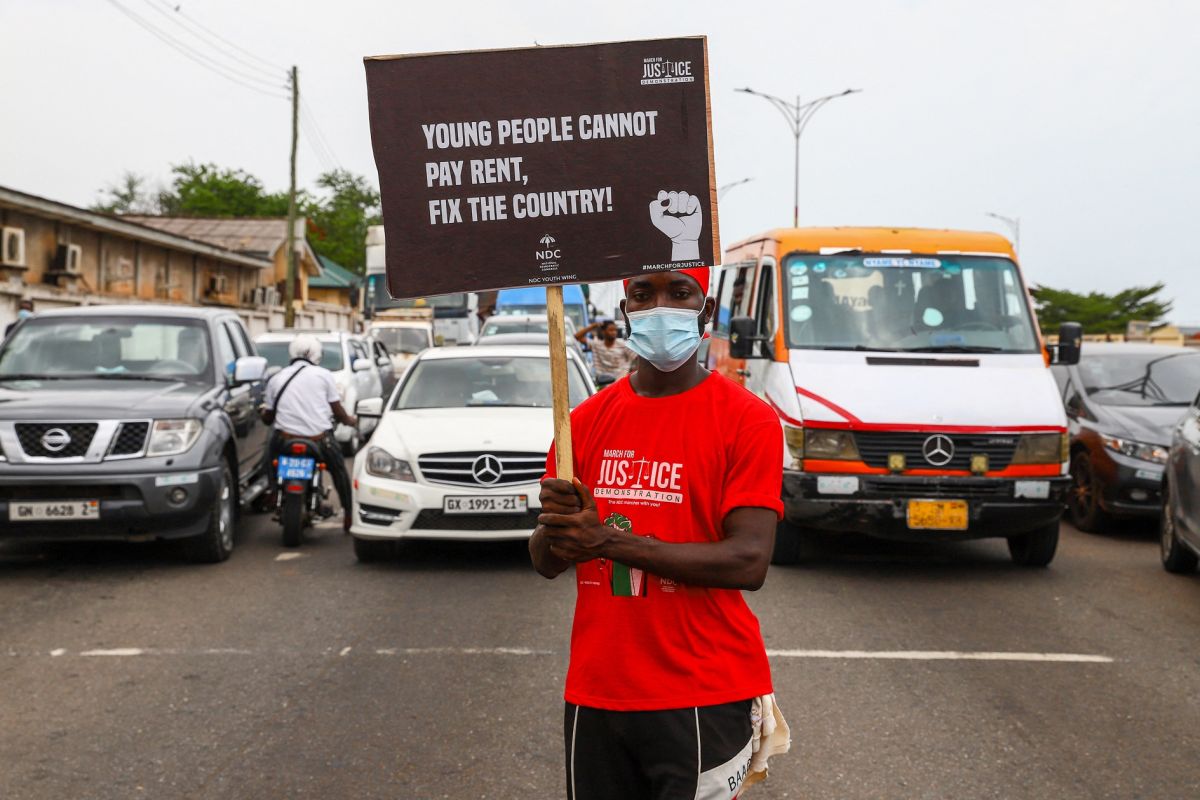Ghana gets the okay for foreign investment

Ghana’s crackdown on money-laundering and counter-terror financing sees the country removed from the dreaded ‘grey list’. By Cliff Ekuful in Accra.
Ghana is set to attract more foreign direct investment (FDI) and boost its economy following the decision by the Financial Action Task Force (FATF) to remove the country from its so-called 'grey list' on June 23.
The global watchdog for anti-money laundering (AML) and counter-terrorism financing (CTF) had placed Ghana on the grey list in February 2020, following a damning assessment of the country’s financial practices by the Inter-Governmental Action Group against Money Laundering and Terrorist Financing in West Africa, the body tasked with the monitoring and assessing the flow of illicit money in the subregion.
Taking a lead from the FATF, the European Union (EU) subsequently blacklisted Ghana and placed it among the group of countries with strategic deficiencies in their AML/CTF regimes in May 2020, leading to banks and other financial institutions in the EU to refuse transactions with West Africa’s second largest economy.
The recent decision to remove Ghana from the grey list after more than a year of pariah status has come as a great relief for President Nana Akufo-Addo’s government, which intends to leverage it to drive home its FDI agenda.
Despite attracting international automobile giants like Volkswagen, Toyota, Suzuki and Sinotruk to build assembling plants in the country over the last four years, youth unemployment continues to be a challenge in Ghana. The country has been beset with agitations since the Covid-19 lockdown, including the recent #FixThecountry movement that has centred around Ghana’s growing youth unemployment and under-employment problem.
Ghana received about $4.9 billion worth of FDI in 2017, but the figure slumped to $3.5 billion and $1.1 billion in 2018 and 2019 respectively, before increasing back up slightly to $2.6 billion in 2020.
Although the slump in Ghana’s FDI was not directly linked to FATF’s placement of the country on its grey list last year, the minister of finance, Kenneth Kuntunuku Ofori-Atta, believes the delisting will make financial transactions less stressful as well as boost integrity of the financial environment.
‘Financial transactions into the country and due diligence on investment into the country had been treated with extra caution while Ghana’s Financial Intelligence Centre (FIC) led efforts to strengthen the AML/CTF regime,’ Ofori-Atta said at a briefing in Accra.
Addressing journalists, the finance minister said an Inter-Ministerial Committee had been working hard, coordinating key reforms to cure strategic AML/CFT deficiencies.
He added: ‘In addition, I have been chairing and guiding a multi-stakeholder national task force on AML/CFT. The Inter-Ministerial Committee has worked closely with the president and Cabinet Office to fundamentally transform AML/CFT governance of Ghana by approving the national AML/CFT policy and strategy, enacting critical legislation, and instituted key measures.’
Meanwhile, the CEO of the Financial Intelligence Centre of the Bank of Ghana, Kwaku Dua, has expressed satisfaction with the decision by FATF to delist the country from its grey list, stressing that ‘the development is positive for the country’s image and the economy’.
Over the last three decades, an estimated $1.3 trillion is said to have moved out of the African continent through illicit financial flows and, according to an anti-money laundering expert, Emmanuel Senanu Mekpo, this could partly be blamed for the continent’s under-development.
‘Listing Ghana on the grey list did not only lead to some reputational damages to the country but also inhibited FDI,’ Mekpo told NewsAfrica.
‘This is because some of these big international organisations work hand in hand with the European Union (EU) that subsequently ‘blacklisted’ the country.’
The University of Ghana Business School PhD candidate added that African countries would save millions of dollars that could be used to finance their development agenda if all the loopholes that fuel illicit flows of money were blocked.
‘Beyond raising enough finances to deal with the development gaps, it will also help to deal with the financing of terrorism and other jihadist activities on the continent,' he explained.
Meanwhile, Godfred Bokpin, an economist with the University of Ghana, said the government needs to make it even harder for people to illegally transfer monies out of the country if it wants to stay off the grey list. He added: 'It was clearly avoidable, so whatever measures we have taken to ensure our delisting will have to be sustained.’



